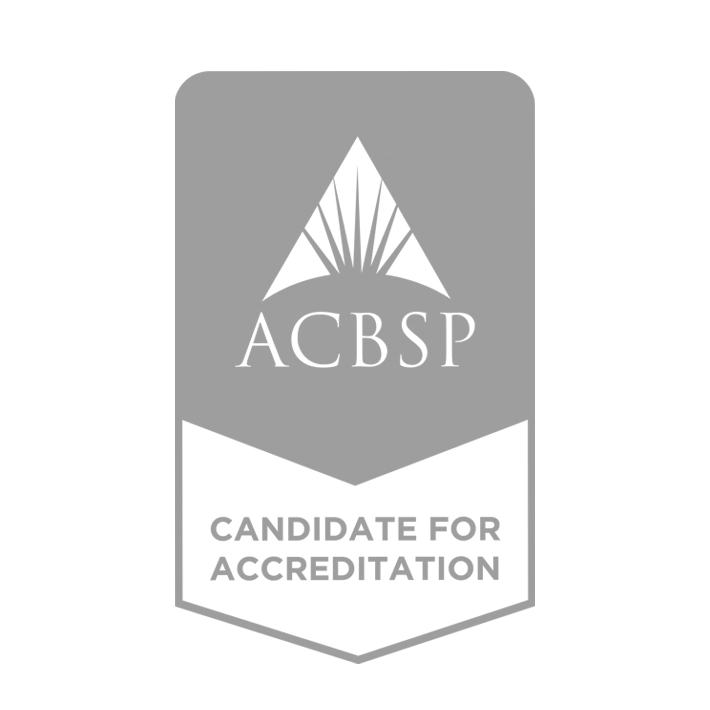Overview
Sustainable agriculture, from a business perspective, seeks to balance ecological responsibility and profitability by employing methods that optimize resource use, minimize environmental impact, and meet consumer demands for ethically produced food.
With an ever increasing need for improved agricultural output to better support population growth through innovative operations and sustainable practices, the Lambton College Business - Sustainable Agriculture, Ontario College Diploma program is designed to provide students with business and management training, combined with a concentration in Canadian agriculture sustainable and environmentally compliant operations and practices.
As the modern agriculture industry evolves, the need for agri-business experts to aid in complex decision making is a key to improving efficiency and optimal production needed in Canada today. In this multi-disciplined program, students relate business knowledge and apply it to agricultural situations. Students develop a foundation of business skills, including communications, accounting, human resources, relationship management and marketing strategies that can be directly applied to the Canadian agricultural industry of today.
With the rapid adoption of agricultural technology, students study the impact as well as various applications from business software to farm machinery and field data collection and analytics. Students also study agricultural management to gain a deeper understanding of the production, logistics and sustainability as it relates to food, feed, fuel and fibre. Livestock physiology and health, pest and soil management and emerging agri-business systems are also studied. Students apply their learning and skills through simulations and case studies and have the option to gain real-world experience through co-operative education.
Admission Requirements
O.S.S.D. or equivalent with:
- Grade 12 English C or U
Mature Student Assessment for this program is available in the subject of English for the purpose of demonstrating proficiency in this required admission subject. For all other admission requirements, applicants must complete the required course(s) as listed above. For more information, please contact counselling@lambtoncollege.ca. Review the Mature Student Admission process.
Academic admission requirements can be obtained through Academic Upgrading and the Pre-Programs at Lambton College.
Accreditation Council for Business Schools & Programs (ACBSP)
This program has achieved ACBSP Candidacy status which means that this program aligns with global business standards and prepares you for success in your career.
ACBSP Candidacy signifies our commitment to high quality, industry relevant education, ensuring you gain not just knowledge but a competitive edge in the business world.

Costs
- Fees will be determined in Spring 2024.
Technology Requirements
In order to keep pace with the requirements of each and every course in your program, Lambton College requires that each student have access to a laptop while studying at our college.
Courses
Canadian Agri-Business Fundamentals
This course familiarizes students with the diverse and bountiful nature of the agricultural industry in Canada. Students will be introduced to the unique operations of Canadian agri-business from a regional, provincial and national perspective. Students will gain the knowledge of Canada's stature in the global marketplace. As well, key business concepts will be introduced to assist in building a foundation for sound decision making. Students will develop a strong understanding of the rural support mechanisms and organizations in place to ensure safe, viable and sustainable food production in Canada.
Agricultural Accounting & Finance
Introduction to Plant Science
In this course, students study plant environment in relation to plant structure in a controlled greenhouse environment. Students learn the various terms surrounding plant science and understand plant adaptation to various environments, including plant nutrition. Curriculum includes plant reproduction, tissue culture, soils, fertilizers and soilless media for growth.
Business Mathematics I
This is a course in the mathematical concepts needed for success in the modern business world. We will study percentages, ratios and proportions, exponents; algebraic manipulation and solution of equations and equation systems; plotting, graphing and reading descriptive charts; deriving and presenting descriptive statistics.
Critical Thinking & Writing
In this writing course, students respond to current issues and news articles via various styles of paragraphs and essays. Students practice thinking critically and organize and hone their writing to ensure clarity and correctness in their messages. Students explore different perspectives, and through synthesis, analysis, and response, strive for clarity of message and diplomatic expression of opinion based on fact. One of the pillars of Lambton College is a commitment to sustainability and equity, diversity, and inclusion, including Indigenization of the curriculum; where appropriate, readings in this course will reflect this commitment. Critical Thinking and Writing lays the foundation for a subsequent research-writing course.
Marketing Fundamentals
This introductory marketing course provides students with a comprehensive overview of the principles, concepts, and practices of marketing. Marketing plays a critical role in today's business landscape, helping organizations effectively connect with their target audiences, create value, and drive business success. This course explores the fundamental theories and techniques of marketing while also emphasizing the role of sustainability in creating long-term value for businesses, society, and the environment. Students are introduced to various marketing components, including consumer and business buying behaviour, customer segmentation, marketing research, product development, pricing, distribution, and integrated marketing communications.
Foundations of Equity, Diversity & Inclusion
Increasingly, employers are required to build and maintain workplaces that are equitable, inclusive, and psychologically safe for all workers. This is inclusive of visible and invisible differences across people. This course provides students with the knowledge to identify and articulate the importance of equity, diversity, and inclusion ("EDI") practices in the workplace. We will explore the history, key concepts and definitions, the business case for allocating resources to EDI practices, and strategies to support the organizational strategy in the context of regulatory and legislative requirements, and emerging trends, opportunities, and issues.
Job Search & Success
This course provides student with skills and knowledge to help support their career search and succeed in the workplace. Students align their personal skill set and goals to guide them on their career paths. They will learn how to effectively conduct a job search, build a professional and well-tailored resume and cover letter, and develop and practice interview techniques. Students will also develop their personal brand to help support effective career networking and aid in their job search. Teamwork and collaboration in the workplace are also discussed. Self-reflection is used to inspire insight and support their professional career journey.
Agricultural Machinery & Farm Safety
This course provides students with a general overview of farm machinery and technology employed by Canadian producers of agricultural commodities. Students will become familiar with the uses of tractors, harvesters, tillage, planting and spraying equipment. Precision Farming principles and components will be introduced. As with all heavy equipment, safe operation and site awareness is of utmost importance. Students will describe and demonstrate safe farm workplace practices as directed by Canadian safety laws and regulations.
Introduction to Canadian Field Crop
This course takes a systems approach to Canadian agricultural crop production and offers students a comprehensive understanding of the principles and practices involved in managing field crops in Canada with a focus on environmental sustainability. Curriculum topics include identification of major Canadian crops, promoting sustainable farming practices that minimizes environmental degradation, product end use, land preparation, conserve soil heath, crop selection, crop establishment, and harvesting will be discussed. In addition, basic soil characteristics and plant morphology are studied.
Introduction to Canadian Livestock Operations
Livestock agriculture is a large and diverse industry within Canada that includes many different species, as well as many different production methods. Students taking this course will learn Standard Operating Procedures for Ontario producers, efficient and low stress handling, the basics of mechanical and technical systems that help with animal agriculture, nutrient management, and the role of livestock within a regenerative agricultural system This class will feature a combination of in-class presentations, labs, and field trips in order to show students modern production methods.
Human Resources Management
Effective Human Resources Management (HRM) is critical to the success of organizations today. This course will provide an overview of the key concepts of HR management and will include some history and theory of the HR function and important terminology. It will introduce students to the core competencies of effective HR practitioners and allow for self-assessment against these competencies. We will be discussing core HR practice areas such as Strategic Planning, HR Planning, HR Administration, Talent Management, Training Learning and Development, Performance Assessment, Total Rewards (including Compensation and Benefits) Employee and Labour Relations and Health and Safety in the workplace. In addition, the course looks at the legal environment for effective HR management, and the role of HRM in mergers and acquisitions and organizational change management.
Communications for Business
This course provides students with the skills required for professional, written, and oral communications essential to business success and subsequent courses. Students will develop database and internet research skills; prepare professional written business communication; and create, practice and deliver professional oral presentations. Students will research and document borrowed information in a business report and will demonstrate critical reading and thinking skills.
Introduction to Managerial Accounting
The managerial accounting course provides students with skills to become highly effective in environments where quick decisions are required. Students learn to use financial information to make quick strategic decisions including how to use data to evaluate the effectiveness of current operations. Learning to maximize the profitability of operations, students interpret financial statements and supporting financial data that drive decision making. Topics covered in this course include cost management, analysis of financial performance, application of pricing strategies, and budgetary planning and control for a business enterprise.
General Education Elective
Work Term (Full-Time - optional)
Co-operative education provides students with the opportunity to apply classroom learning to the workplace, undertake career sampling and gain valuable work experience that may assist students in leveraging employment after graduation. For further information regarding co-op, please refer to: https://www.lambtoncollege.ca/co-ops-placements
Canadian Greenhouse Production
Students in this course study a variety of greenhouse production including an overview of the Canadian greenhouse industry, production economics, chemical and biological pest control, and the production of bedding plants, potted plants, flowering plants and vegetables, as well as an introduction to cannabis crops. In addition, students learn about the actual internal greenhouse environment necessary to understand and work within a greenhouse. Students learn the necessary skills to enhance their background for employment in the greenhouse crop production industry.
Farm Biosecurity in Canada
Biosecurity is the protection of livestock, poultry and crops from any type of disease or pest whether viral, bacterial, fungal, or parasitic. People, animals and equipment can bring diseases and pests with them from off-farm and spread them around the farm from one facility to another. Students will learn about good biosecurity practices and how to apply them on-farm. This course will cover three primary on-farm control areas: farm access management (people and vehicles); animal and plant health management; and operational management (sanitation of equipment and facilities; wildlife and pests; and, training and documentation).
Introductory Pest & Weed Control Management
Students will study the principles of pest management in agricultural cropping systems. They will learn the basic concepts of integrated pest management and principles guiding the safe use of pesticides. Students also study identification of selected weeds, diseases and insects of field crops in Canada.
Canadian Vegetable & Fruit Production Management
Curriculum focuses on the role of the Canadian climate in large-scale fruit and vegetable production; cold hardiness; flowering and fruit development; fruit growth, thinning and maturity indices; harvesting techniques; and marketing and food safety are discussed. In addition, planting, pruning, and frost protection are also addressed. Soil, climate, and equipment, utilized for a wide variety of crops, from vegetable crops to vines is discussed. Students learn the necessary skills to enhance their background for employment in the fruit and vegetable crop industry.
Selling
This course is designed to provide students with an introduction to professional selling and the skills required to find success in relationship building and sales. Students are introduced to the many career alternatives available as well as the day-to-day expectations of a successful salesperson. The focus is to assist students develop their personal brand and strengthen their presentation, communication, and negotiation skills through role-playing, simulations, and applied learning exercises. Both traditional and digital prospecting methods are explored, along with the application of effective discovery, proposal creation, and problem resolution strategies, all in support of creating a customer relationship built on trust. Topics include goal setting, planning, time management, sales analytics, key performance indicator analysis, and customer relationship building. Students apply their learning in a simulated, professional business-to-business sales environment.
Macroeconomics
This course provides an understanding of the role of economics in business decision-making through the study of the methodology of economics, the components of the Canadian economy, cycles in the economy, macroeconomic goals, the measuring of economic performance, and government intervention in the economy as government attempts to manage the economy.
General Education Elective
Introduction to Canadian Agriculture Law
In this course, students are introduced to elements of Canadian Law that play a significant role in agri-business and Canadian farming practices. Specific topics include organizational structures of farm operations, jurisdictions of various levels of government insofar as it relates to regulating agricultural matters, select regulatory requirements for farming in Canada, select dispute resolution processes, plus related federal and provincial legislation.
Sustainable Agriculture
This course is an introduction to the field of sustainable food production. With the rise in advanced agricultural practices that use fewer materials and energy, generate less waste and cause less negative environmental impact, sustainable agriculture creates increased efficiency, food security and reduced operational costs. Students study a systems approach for agricultural food production that considers the cultural and environmental factors required to manage soils, plant diseases, insect problems and crop quality. Application to organic commercial food production as well as urban food production are also discussed.
Canadian Agricultural Supply Management
In this course, students are introduced to Canada's agricultural supply management system that helps provide stability to the perishable foods sector. Students study agricultural logistic as to the movement of goods from field to fork along the value chain. Other topics studied include reciprocity agreements, agricultural policies and supply chain trends and challenges.
Precision Agriculture & Technology
Students study current technological changes and trends in agriculture. A large part of the curriculum focuses on how precision agriculture has impacted many aspects of agricultural management and production, and thus, students gain hands on experience with GPS technologies in agriculture. The applications for advanced data collection sensors supported by GPS and complementary systems will also be explored. Precision Farming principles, electronic monitors and controllers used on tractors, seeders, sprayers and combines are studied. Students will also become more familiar with equipment and software used in Precision Farming practices.
Microeconomics
This course provides an understanding of how society chooses what goods and services to produce through an examination of the laws of supply and demand as well as how and for whom they are produced by examining the behaviour of firms, market structures and the distribution of income.
Business Agriculture Capstone
As a culminating course, students engage in high-level inquiry and/or project-based activity that draws upon the areas of interest to the student and focus from the program while demonstrating the knowledge and skills acquired during the program of study.
General Education Elective
Contact
Business, English & Liberal Studies
Program Information
1-844-LAMBTON
After Graduation
Employment Opportunities

Graduates may seek employment in a variety of farming positions or as entrepreneurs. Graduates may also seek employment with organizations that provide services in the agricultural sector, such as feed and supplies, banking, lending, insurance, farm management and equipment sales and service.
Co-op
About Co-op
Students in this program have the opportunity to gain valuable work experience by applying classroom learning during co-op experiences.
Learn more about co-op terms and the roles and responsibilities of students and co-op advisors.
More Information
Technology Requirements
It is recommended that students purchase a laptop with a Windows operating system.
Internet Speed Requirements
For best performance for students learning remotely, an internet connection with a minimum of 40 Mbps download and 10 Mbps upload speed is recommended in order to effectively use video conferencing and remote lecture delivery software as well as, other online resources remotely. Due to the large area over which students may be dispersed, we are unable to recommend a specific provider, so you will need to inquire around your area to find one that best suits your needs.
Minimum Laptop Requirements
In order to access the internet and virtually-delivered software and courseware, student laptops should include the following at a minimum. By meeting the following specifications, students will be equipped to access software and courseware on their laptop through the internet:
- Intel i5 8th Gen Processor or equivalent
- 16 GB of RAM (with a minimum of 8 GB)
- 100 GB HDD or more
- HD Graphics
- Webcam with a microphone
- Wireless 802.11n/ac 5ghz capable
- Windows Operating System (Windows 11)
Software
To ensure students are getting the most our of their classroom experience, some software will be required.
Lambton College has made this software easily accessible online. Students can leverage our Microsoft Office 365 software packages and services. In addition, much of the software you require for your courses will be available on demand for use on any device - on or off campus.
